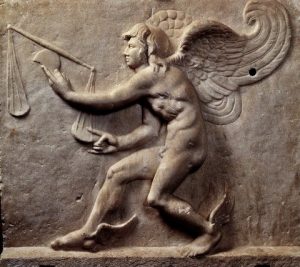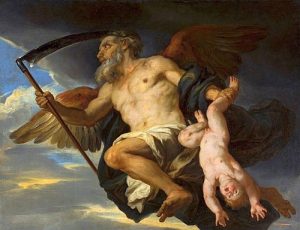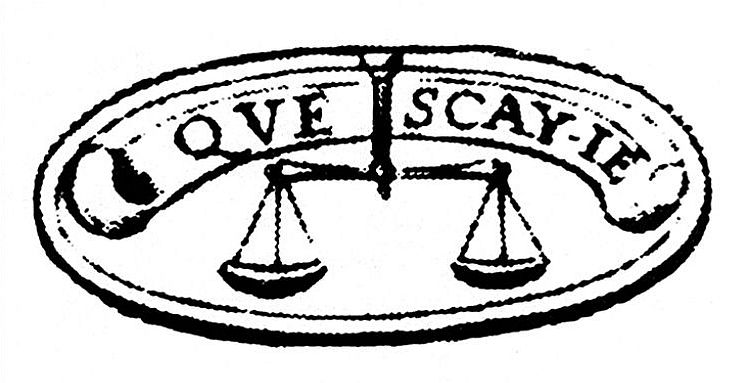Views: 340

When we think of time, why is it we always think of it as a quantitative process?
How come we immediately think of it as clock time?
That time is only measured in seconds, minutes, hours, days, weeks, months and years?
Many people spend most of their time thinking and planning for the future and then worrying about the past?
The past has gone, never to return, and the future is yet to come. There is little you can do about any of it.
During my recent foray into Greek culture, I have stumbled upon a concept that the Ancient Greeks use to describe time.
They use two words.
You might recognise the first word: Chronos.
We use it in words like Chronometer, Synchronous, chronological and so on… These are words and concepts that we are very familiar with. We seem to base our very existence on this idea of time.
The other word the Greeks used was Kairos.
This is a qualitative idea of time. It refers to the perfect moment. The right moment in time. It can be difficult to describe it, but when you have had it, you will know. It is something that has probably happened to most of you but you failed to recognise it and when you did you tried to hang onto it. When you did that it slipped from your grasp like water sliding through your fingers.
When you meditate or engage in a task that requires focussed concentration you might have experienced Kairos. You feel like you are standing outside of chronological time, in the space between the in-breath and the out-breath.
Recently I have been using my chronological time to learn more intricate picking on my guitar and when it comes together, I experience a moment I can call Kairos. I am playing in the moment, experiencing that stilling of time. Everything seems… well… just right. There seems to be a balance and I just stay with it. I relax. Not forcing it and not grasping it. If I do it slips away and the moment is lost.

The Ancient Greeks loved to personify everything. Look at the constellations in the night sky and there are names for them all. The Greeks personified even the heavens above and created a narrative with characters inhabiting the stars. The Great Bear, Mighty Orion with his sword and Taurus the Bull. You might know more if you have ever been into astronomy.
Chronos was a cruel master. A weary, bent-back old man with a long beard holding a scythe in one hand and an hourglass in the other.
To the Romans Time was represented by Saturn, which takes everything away and then consumes you too.
Kairos however has a very different personality and is represented as a young man, supple and athletic in build and statues can be found all across the Greek peninsula. You can see the image in the text here. See how his hair is long at the front and shaved at the back.
There is often an epigram along with the statue and it reads:
“Who are you? Time who subdues all things.
Why do you stand on tiptoes? I am forever running.
Why do you have wings on your feet? I fly with the wind.
Why do you hold a razor in your hand? As a sign to men that I am sharper than any sharp edge.
And why is your hair hang in your face? For him that meets me to take me by the forelock.
And why is your head bald at the back? Because none of whom I have once raced by on my winged feet will now, though he wishes it sore, take hold of me from behind.”
Unlike Chronos, Kairos cannot be planned and it can’t be forced. It’s about paying attention on a daily basis. We call it mindfulness or awareness and when we learn to switch on our senses and experience the world in this moment, there stands Kairos.
When you learn to embrace life in this way, you learn that everything is subject to change and you let go of any idea of past and future. That is Kairos.
It’s about taking a risk. Doing something that may seem foolhardy and maybe it is not working out. I’ve done it a few times and can still recount the moments of balance that this could bring.
I had a motorcycle business that didn’t work out, and yet I remember the experience and the excitement it engendered; the friendships I made and the madness of the four years.
It’s about embracing the possibility of being disappointed. Ask anyone who has set up their own business and they will have experienced Kairos at some point. Many people don’t recognise Kairos and end up having a terrible time, instead of embracing the moment for what it is, just a moment.
The Greeks talk about Ataraxia, which is a state of tranquility often experienced in the middle of the battlefield. In the midst of the madness, the violence and the confusion Kairos appears.
Being open to new experiences means risking boredom, loss, fear and anger. These are just emotions that have been generated by the way you have learned to perceive the world. You attach labels to your experiences, positive or negative, when in fact these are all just relative terms.
The trend in society to homogenize experience, to manufacture everything to a formula, is to ensure that nothing too strange or disappointing ever happens. The way to keep safe is to avoid any risk of a surprise.
When life is like this, you won’t experience the spontaneity that brings forth creativity. Creative people often experience Kairos. That’s how great art is created. It’s about having the perfect moment and going with the flow. That is all one can ask for.
Perfection only exists only in that moment, and that is all we can expect. Just make sure you recognize Kairos in your everyday experience and there will be a balance in your life.
Perfect!
